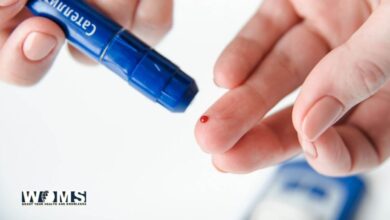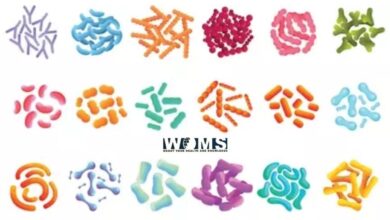NAD+: Unlocking the Secrets of Cellular Vitality and Aging Gracefully

Introduction
In the intricate web of cellular processes, there’s a tiny yet mighty molecule that plays a pivotal role in maintaining cellular vitality and combating the effects of aging: Nicotinamide Adenine Dinucleotide, or NAD. As we embark on a journey to explore the depths of this coenzyme, we’ll uncover its primary functions, delve into the intricacies of its role in cellular metabolism, and examine the potential it holds for anti-aging strategies. Additionally, we’ll explore how various interventions and lifestyle choices can complement and enhance the effects of NAD+ to promote a healthier, more vibrant life.
Understanding NAD+
NAD+ is a coenzyme derived from vitamin B3 (niacin) that resides in the cells of all living organisms. Its primary function revolves around facilitating redox reactions crucial for energy metabolism. In the cellular powerhouse, the mitochondria, NAD+ serves as a vital cofactor in glycolysis and oxidative phosphorylation, the processes responsible for extracting energy from nutrients and generating adenosine triphosphate (ATP).
Energy Metabolism and NAD+
NAD+ operates as an essential player in cellular respiration, acting as a coenzyme for enzymes involved in glycolysis. During this process, glucose is broken down into pyruvate, and in the course of these reactions, NAD+ is reduced to NADH. The electrons carried by NADH are then shuttled to the mitochondria, where they participate in the electron transport chain, ultimately leading to the production of ATP.
As we age, however, the levels of NAD+ tend to decline, contributing to a decrease in energy production and an increased vulnerability to age-related conditions. This decline is associated with a variety of factors, including changes in NAD+ biosynthesis, increased NAD+ consumption during DNA repair processes, and alterations in cellular metabolism.
Anti-Aging Potential of NAD+
The connection between NAD+ and the aging process has become a focal point of scientific research. The age-related decline in NAD+ levels is implicated in various aspects of aging, including compromised DNA repair mechanisms, reduced cellular resilience, and impaired mitochondrial function.
Recent studies have suggested that boosting NAD+ levels may hold promise as an anti-aging strategy. The link between NAD+ and sirtuins, a family of proteins associated with longevity, has garnered particular attention. Sirtuins, such as SIRT1, are NAD+-dependent deacetylases that play a role in regulating cellular processes like gene expression, DNA repair, and metabolism. By replenishing NAD+ levels, there is potential to enhance sirtuin activity and, consequently, promote cellular health and longevity.
Supplementation and NAD+
The idea of enhancing NAD+ levels through supplementation has gained traction in the scientific community. Although the discussion around supplements is excluded, it’s worth noting that certain compounds, like nicotinamide riboside (NR) and nicotinamide mononucleotide (NMN), have been explored for their potential to boost NAD+ levels.
However, it’s crucial to approach supplementation with caution, as the scientific community is still investigating the safety and efficacy of these interventions. Instead of focusing solely on supplements, it’s prudent to consider lifestyle factors that can naturally support and amplify NAD+ levels.
Lifestyle Strategies to Enhance NAD+
Physical Activity: Regular exercise has been linked to increased NAD+ levels. Engaging in both aerobic and resistance training can stimulate the production of NAD+ and contribute to overall metabolic health.
Healthy Diet: Certain nutrients, such as tryptophan and niacin-rich foods, are precursors to NAD+ synthesis. A well-balanced diet that includes these nutrients can support the body’s natural ability to produce NAD+.
Stress Management: Chronic stress is associated with accelerated aging and may contribute to NAD+ depletion. Adopting stress-reducing practices, such as meditation or yoga, can positively impact NAD+ levels.
Adequate Sleep: Quality sleep is essential for overall health, and it has been suggested that sleep deprivation may impact NAD+ metabolism. Prioritizing good sleep hygiene can potentially contribute to maintaining optimal NAD+ levels.
Metabolic Health: Conditions such as obesity and diabetes are linked to altered NAD+ metabolism. Managing metabolic health through lifestyle choices and, if necessary, medical intervention can positively influence NAD+ levels.
Conclusion
In the grand tapestry of cellular biology, NAD+ emerges as a central figure, orchestrating processes that dictate cellular vitality and resilience. As we age, the decline in NAD+ levels underscores its importance in the aging process, making it a fascinating target for scientific inquiry and potential intervention.
While the intricacies of NAD+ metabolism continue to be unraveled, the key takeaway is clear – nurturing and supporting NAD+ levels can be a cornerstone in promoting overall health and potentially mitigating the impact of aging. From understanding its role in energy metabolism to exploring the anti-aging potential through lifestyle strategies, the journey into the realm of NAD+ offers a glimpse into the future of personalized health and longevity. By embracing practices that naturally enhance NAD+, we may unlock the secrets to aging gracefully and maintaining vibrant cellular health throughout the journey of life.




